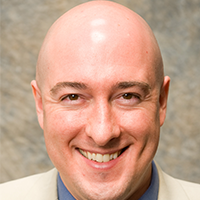Roy Campbell Chief Scientist, High Performance Computing Modernization Program Department of Defense
Sessions
-
AIAA SciTech Forum 2020

Dr. Roy Campbell currently serves as the Chief Scientist of the DoD High Performance Computing Modernization Program (HPCMP) – a $250M per year program chartered by Congress to revolutionize warfighter support through the increased application of HPC to critical research, development, test, and evaluation (RDT&E) initiatives. As Chief Scientist, he is responsible for developing the HPCMP’s science, engineering, and software strategy.
Dr. Campbell previously served (1) as the HPCMP Chief Technology Officer (CTO), responsible for analyzing supercomputing architectures, tracking technical trends, articulating future computational requirements, and procuring supercomputing hardware and software valued at approximately $50M per year, (2) as the HPCMP Deputy Director, responsible for the administration and daily operation of the HPCMP, and (3) as the Program Manager of the Defense Research and Engineering Network (DREN), responsible for (a) the delivery of network and security services valued at approximately $50M per year to over 200 customer sites across 40 states and (b) the leadership of over 140 Government employees and contractors in the innovation and sustainment of the DoD’s premiere research, development, test, and evaluation (RDT&E) network.
Dr. Campbell has coauthored 6 journal articles, 28 conference papers, 2 government technical reports, and 3 textbook chapters to date. He was awarded the International Test and Evaluation Association (ITEA) Publications Award in 2011, was a semi-finalist for the Franz Edelman Award for Achievement in Operations Research and Management Sciences in 2009, and was a finalist for the Service to America Award in 2009. He has served on a wide range of evaluation and advisory boards in support of the ACM/IEEE Supercomputing Conference, the Army Research Office, the Australia Department of Defence, the Defense Advanced Research Projects Agency, the Defense Information Systems Agency, the Department of Energy National Nuclear Security Administration, the Department of Energy Office of Science, the Euro-Par Conference, MIT Lincoln Labs, Lawrence Livermore National Laboratory, the National Science Foundation, the National Security Agency, and the Pacific Northwest National Laboratory. To date, he has influenced over $2.25B in Government acquisition.
